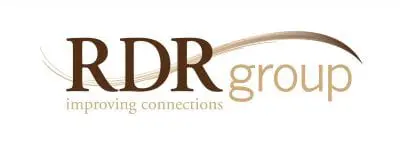Most organizations cannot afford to train people if attendees do nothing with what they have learned, so at RDR Group—“training is not simply about knowing, it’s about doing.” Yes, it’s important to communicate information—but only if it is utilized. As a result, we have been shifting our focus beyond simple classroom teaching to helping participants put what they learn into practice, because this is what changes them and their organizations. It starts by identifying specific behaviors that either help or hinder progress around issues like inclusion, trust, service, resilience, communication, and other topics of importance. This ensures that the training is more than a presentation of concepts, and that it becomes a useful discussion of what to do or not do in support of the learning experience. But that’s only the beginning.

THE PHILOSOPHY
Here’s what participants say about the Proven Practices:
“These meetings went beyond our expectations and were truly meaningful.”
“These practices go a long way in getting people more comfortable working together.”
“My practice partner is someone I’ve known for 19 years, and since our meetings I’ve learned so much I didn’t know – it’s been so life changing.”
“The accountability nudges and the guidelines were not only helpful but needed.”
“I feel this was 100% worthwhile.”
“The discussion templates were great, and without them we would not have connected as well.”
“We’ve all gone through diversity training before, but we’ve never done anything as meaningful as this – it was the best class I’ve attended in 20 years.”
“The 8 weeks are over, but we will continue to meet and continue to utilize what we learned.”
THE PRACTICES
Everyone knows that classroom learning can sometimes feel like a pep talk and nothing more. We would all love it if a pep talk on nutrition made us healthy—but in reality, it’s only when we do something with our knowledge that it can produce measurable change. The same is true for anything we learn: change only happens when the instruction is clear and certain practices are put in place with tools and accountability to insure follow through—we call them Proven Practices. After isolating the most impactful behaviors for a given topic, we discuss them thoroughly in a training session, and ask participants to commit to follow-up practices on the job while giving them the resources to do it. For example, a class on inclusion offers instruction on inclusive practices, where attendees agree to find a practice partner at work who is different from them in some way (race, age, gender, personality, whatever). After the session, they are expected to meet once a week for 30-60 minutes for the next 8 weeks. Each week they receive Proven Practice Guides that provide discussion templates and activities so inclusion can go beyond knowing to doing—this how a training goes from talk to action. A similar approach can be used for improving trust, communication, resilience, service, respect, or any key area of learning.
THE PROOF
Most of our clients are interested in knowing whether training success can be proven—and we share that interest. As a result, we teamed up with an Ivy League University to determine if classroom learning, coupled with follow-up activities, can produce a change that can be measured scientifically. We think we can prove it (click here to read more about this study). We also believe that success can be measured in business outcomes like productivity, engagement, retention, and customer service ratings.










